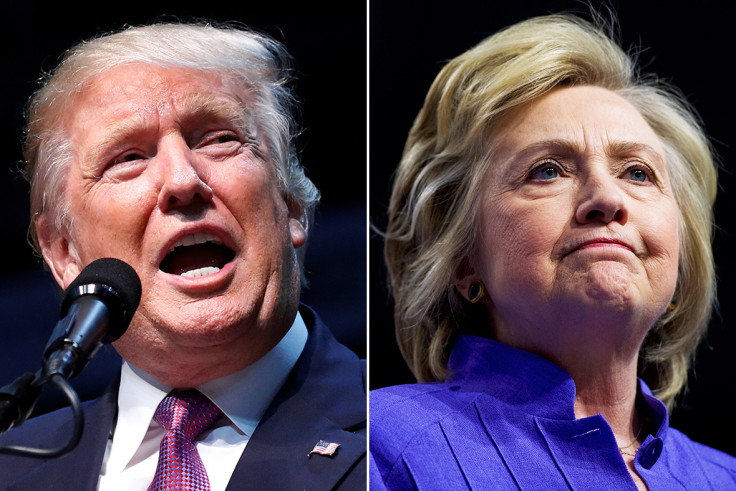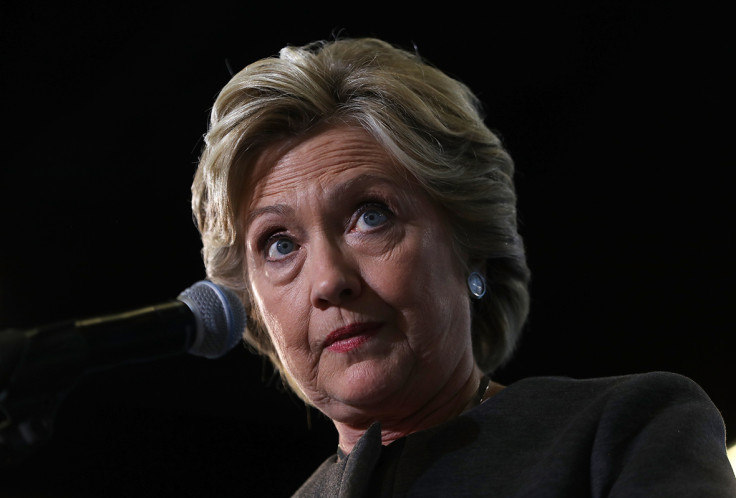Clinton vs Trump marks the battle between progressive reinvention and minority populism
Clinton has her detractors, but Americans likely to look beyond minority populism to elect first female president.

Will the first African-American US president be followed by the country's first woman president in this 240-year-old democracy, or be followed by the first property mogul reality TV host? In many ways, the US finds itself, once again, at the crossroads of choice between progressive reinvention versus retrenching to some fictional past of glorious isolationism.
The rest of the world stands in trepidation that the latter may emerge as the winning message, but we would be well-placed to look beyond the loud noise of minority populism to pay attention to the former, which would represent a powerful validation of liberal democracy as a robust political system.
There is no doubt that coming out of the rancorous primary battles through which the US selects its two candidates to contest the general election, the dominant narratives have been anti-elitist slogans about all that is wrong with the republic.
Of course, the hollowing out of the middle class is a challenge that must be tackled with much greater intent. However, for America to elect its first female president eight years after electing Barack Hussein Obama, it could once again refresh the country's democracy as the beacon on the hill in bolstering an emerging global emancipation of women.
With the long hot summer of the Democratic and Republican political party conventions having passed, I suspect the attraction of the never done before will once again prove too tempting for the innate American dream drive for tomorrow, rather than yesterday, as it did for the first African-American presidential nominee when he swept into office.
It won't hurt that under the watch of the Democratic Party's President Obama, the economy has added more than nine million jobs, and the jobless rate has dropped to below the historical median. That compares with the nearly 23 million jobs gained during the booming years of Democrat Bill Clinton's presidency in the 1990s, and the fewer than 1.3 million added during Republican President George W. Bush's eight years, which were plagued by two recessions.
While the reality is that the Trump slogan of "Make America Great Again"fired up the economically disenfranchised right leaning white citizens of red states during the Republican primary season, seeing off formidable establishment candidates like Jeb Bush and Marco Rubio, it is unlikely to resonate with a general election majority audience who believe the US doesn't need to be made great again because it has never stopped being great.
As one blue-collar maintenance worker who will be voting on 4 November in the swing state of Florida told me: "We do not need to 'Make America Great Again', America has always been great and is welcoming to all!"
After driving across America over the last two weeks from New York to Wyoming, stopping in red states and blue states, I sense there are more who echo this mindset than less, much to Trump's chagrin. One Montana mountain resident of Paradise Valley even told me that he "would love to vote for Obama for a third time!"
And the stats appear to support the narrative that all is relatively well in the US eight years after it faced economic Armageddon. The recent low inflation has helped the buying power of weekly paychecks. The US Bureau of Labor Statistics' measure of average weekly earnings for all workers, adjusted for inflation and seasonal factors, was 3.4% higher in November 2015 than it was when Obama first took office at the start of 2009.

The number of long-term unemployed – those who have been looking for work for 27 weeks or longer – had dropped to less than 2.1 million in December, which is 614,000 fewer than when the President first took office. But it is still 761,000 higher than it was in December 2007, at the start of the Great Recession – more work to do!
If I had a dollar for every time I heard the phrase – "I would love to vote for a woman president - I just wish it was someone other than Hillary" – I would be as rich as the Million Dollar Saloon in Jackson Hole, Wyoming.
And there lies the rub for the Democrats, as the enthusiasm gap for the historic leap has been subdued by what is often described as a trust deficit left by the 30-year political legacy of the Clintons. But as one of America's greatest presidents, Abraham Lincoln, once said: "This too shall pass!"
In the US, white women over the age of 21 were allowed to vote in the western territories of Wyoming from 1869 and in Utah from 1870, and in most states outside the South by 1919. With the ratification in 1920 of the Nineteenth Amendment, suffrage was extended to women across the United States in time for the 1920 presidential election. Women over 21 were allowed to vote in Canada (except Quebec) from 1919.
Clinton has been astute to recognise all the women of the last 100-year history who have forged the path to full equality. She has pledged to build on the achievements of these pioneers, of which we will be hearing much more about as election day nears.
Sean Evers is the founder and managing partner of Dubai, UAE-based strategic consultancy Gulf Intelligence. In the run up to the 2016 US presidential election, Sean is authoring a series of articles for the International Business Times scrutinising America's socioeconomic challenges and the response of both the Trump and Clinton campaigns to economic demands of the electorate.
To read previous columns by Sean, on his journey across the US ahead of the 8 November, 2016 US Presidential election, click here.
© Copyright IBTimes 2025. All rights reserved.






















